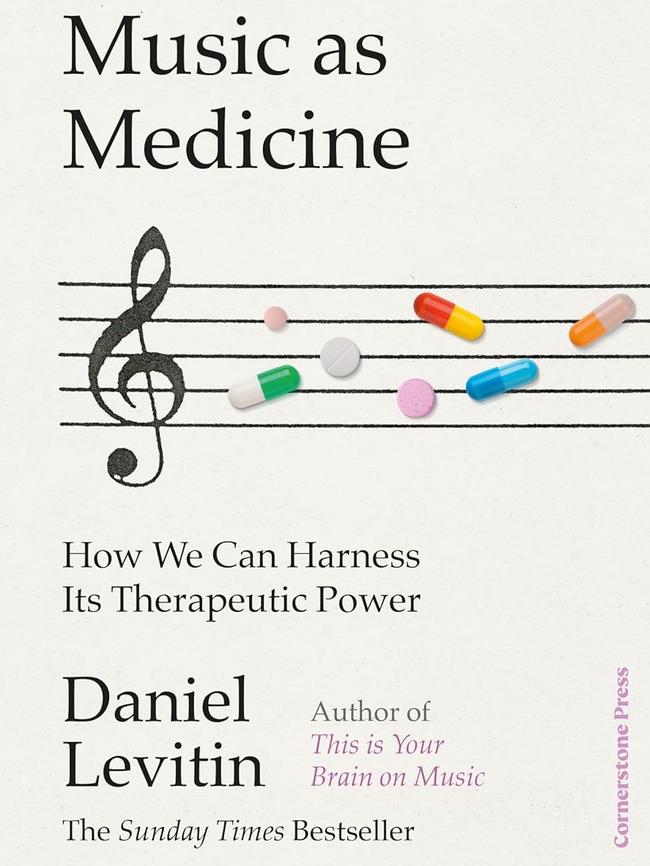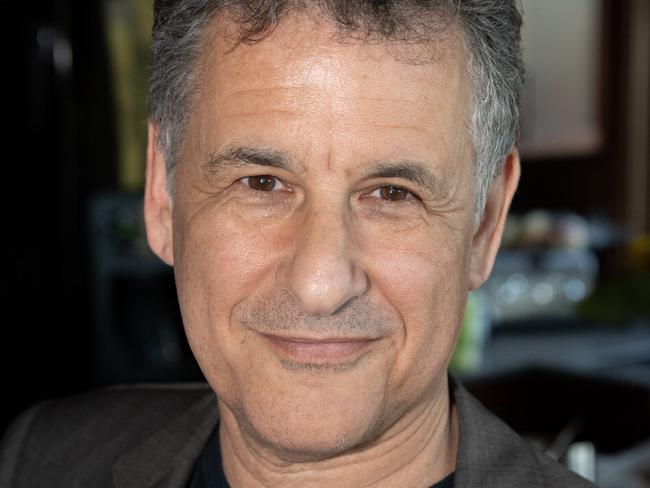How music keeps the doctor away
A new book argues for the therapeutic benefits of music.

Daniel Levitin is a Canadian-American polymath, with a profound love of music. He is a cognitive scientist, a neuroscientist, a musician and an analyst, in particular, of both the misuse of statistics and the workings of music in the human brain. His latest book, Music As Medicine, picks up a theme pioneered by Oliver Sacks, as recounted in the latter’s compelling book Musicophilia: Tales of Music and the Brain (2008).

The nature and function of music were not appreciated by Charles Darwin or other evolutionary biologists, such as Stephen Jay Gould. They saw it as a peculiar eccentricity of human beings, not a significant pointer to the very nature of humanity. William James, so perceptive in regard to human cognitive psychology, nonetheless saw music as an anomaly which, he inferred, must have entered our minds “by the back stairs”.
Nietzsche, the great iconoclast, remarked: “We listen to music with our muscles”; and “Without music, life would be a mistake”. The anthropologist Claude Levi-Strauss (1908-2009), saw music as “the supreme mystery of humanity”.
It wasn’t until the 1980s, however, that neuroscience began to study how music works in the brain. Since then, that inquiry has taken significant steps. Levitin has been along for the ride. He seeks to draw us all into the significance of the findings.
His two earlier books on the subject, This is Your Brain on Music (2006) and The World in Six Songs (2008), laid out the groundwork. This new book attempts to drive home the argument. It’s fascinating, but it traverses the landscape too discursively. Between its core theme, the therapeutic power of music, the neuroscience allowing us to study the effects of music in the brain, and analysis of music in and of itself, he wanders too often.
The consequence is an insufficiently clear account of the actual therapeutic merits of music. This is apparent when, for instance, one reads Claire Oppert’s little book, The Schubert Treatment: A Story of Music and Healing (Greystone Books, 2024), which relates a stunning set of personal stories about playing the cello for grievously afflicted human beings and witnessing the often remarkable results.
Read Musicophilia, then The Schubert Treatment and you will come away enriched with an understanding of how profound the impact of music can be. Reading Music as Medicine, one comes away less with a deeper grasp of that, than with a complex sense of how our brains and bodies process music and of its deep roots in human social evolution. The title comes to seem a little misleading.
But it is certainly an invitation to delve further into the subject. Gary Tomlinson’s A Million Years of Music: The Emergence of Human Modernity (Zone Books, 2015) is a masterpiece, but appears to have escaped Levitin’s attention. Likewise, Tricia Tunstall’s Changing Lives: Gustavo Dudamel, El Sistema and the Transformative Power of Music (2012), about a remarkable program in Venezuela, the fruits of which have, alas, been swamped by the corruption and criminalisation of the Chavista regime there under Nicholas Maduro.

Read those two books and you will be off to a flying start. Read Music as Medicine and you will very likely come away thinking, “Interesting subject, but very complex. Perhaps he could have written it more clearly”. Indeed, it betrays a number of signs of hasty, even whimsical composition. He indulges in too much discussion of pieces of music and discusses experiments more than communicating the findings.
His historical sense is deficient. He touches, for instance, on Plato’s observations concerning music, in the fourth century BCE, without developing the idea; then refers to Claudius Ptolemy’s major treatise Harmonics, as coming “700 years later”. Actually, it was roughly 500 years later – from Plato’s death in 350 BCE to Ptolemy’s work in the mid-2nd century CE.
He refers to the playing by Beethoven of his 7th Symphony at the Congress of Vienna, wondering whether it contributed to the outcome of its deliberations: laying the foundation for almost a century without a major war in Europe. The presiding genius at the Congress of Vienna was the remarkable French diplomat Talleyrand – Charles Maurice de Talleyrand-Perigord. But J. F. Bernard, in his wonderful Talleyrand: A Biography (1973), made no mention of Beethoven at all. Nor did Henry Kissinger in his study of the Congress of Vienna, A World Restored (1957).
You have to turn to Jan Swafford’s Beethoven: Anguish and Triumph (2014) to find an account of the great composer’s presence at the Congress. But Swafford highlights the performance of Beethoven’s opera Fidelio, rather than the 7th Symphony, while observing that a good many of the conservative dignitaries in Vienna did not much care for Beethoven or his music.
Moreover, Beethoven had nourished the hope that the congress would prove to be a great progressive step for Europe and was deeply disappointed at its profound conservatism. In short, Levitin’s observation was whimsical, ill-informed and superficial.
There are many fascinating insights in Music as Medicine, and much technical discussion of the neuroanatomy of the brain, of how music brings together numerous component parts of it and affects our moods.
There is a beautifully spelled out argument that music is a human universal and that an attention to beat begins in the uterus with the rhythm of the mother’s heart and is central to bodily co-ordination and gait in the bipedal ape.
But the specifically medical side gets rather swamped. Levitin slides between the specifically therapeutic uses of music, their social functions and the neuroscience of mood, as well as a comparison of language and music, the technical construction of music and the nature of musical performance as compared with composition or notation.
What he doesn’t do is what the title of his book promises: spell out clearly the nature and promise of music as medical therapy. It’s there, but it’s obscured. Fortunately, Claire Oppert’s little book and Oliver Sacks’s pioneering one help to fill out the picture. Start with them and, if you have good molars, then chew into Levitin’s book.
Paul Monk is a consultant in critical thinking skills, a workshop facilitator and a poet. His books include The West in a Nutshell: Foundations, Fragilities, Futures (2009) and The Three Graces: Companionship, Discretion, Passion (2022).






To join the conversation, please log in. Don't have an account? Register
Join the conversation, you are commenting as Logout